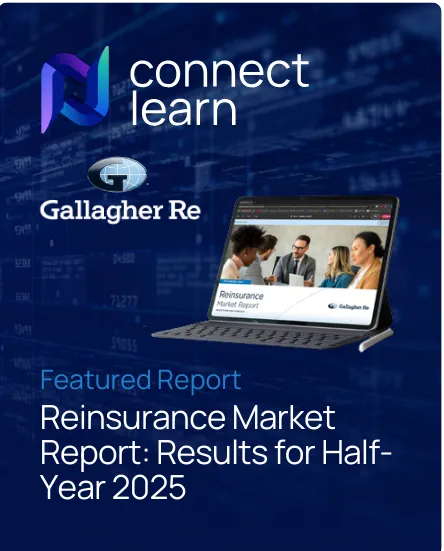Re/insurers in the London market remain confident in achieving their full-year targets, supported by rational pricing, improving capital allocation, and investments in AI and private markets — despite ongoing economic and geopolitical uncertainty, according to equity analysts at Berenberg.
The analysts shared their insights following meetings with a number of re/insurers in the London market.
They noted that pricing in non-life re/insurance remains strong, with insurers confident of meeting their ROE targets despite the potential for elevated natural catastrophes in 2025.
Terms and conditions also remain firm, reflected in higher attachment points, which are prompting primary insurers to underwrite more cautiously across both primary perils (e.g. hurricanes, typhoons) and secondary perils (e.g. severe convective storms, wildfires, flooding).
“Excess-of-loss treaties in reinsurance allow participants to better price their covers than quota-share treaty covers, leveraging their data and pricing capabilities,” said Berenberg analysts. “Furthermore, we note that prudence in profit recognition in US casualty means that the risk from social inflation is well managed.”
Berenberg described the current environment as balanced in terms of supply and demand. While growing capital strength among established re/insurers is leading to some pricing softening, the lack of disruptive new entrants means competition remains rational and pricing is broadly risk-adequate.
In UK life, competitive pressure in the bulk purchase annuity (BPA) market is modestly increasing, particularly following Athora’s £5.7bn acquisition of Pension Insurance Corporation. However, the BPA market remains vast — estimated at around £1 trillion — and could see growing demand driven by new product offerings.
Meanwhile, investment in private market capabilities, through strategic partnerships or acquisitions, is seen as a clear source of additional revenue growth in asset management, helping insurers better leverage funds from their life and pension operations.
Investing in digital capabilities and leveraging AI is also seen as a key source of competitive advantage.
“These capabilities could enable, for example, faster pricing decisions in terms of annuity offerings, more efficient and cost-effective processing at the middle- and back-office level and also better utilisation of data for pricing,” the analysts added.














